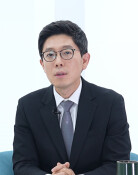S. Korea should embrace Afghan evacuees
S. Korea should embrace Afghan evacuees
Posted August. 27, 2021 07:29,
Updated August. 27, 2021 07:29
Afghans who helped the South Korean government’s Afghan reconstruction efforts at the South Korean Embassy in Afghanistan, Korea International Cooperation Agency, Korean hospitals, and vocational training centers, and their family members arrived in South Korea in military aircraft from an airport in the Pakistani capital of Islamabad. This is the first time that South Korea has transferred and accepted a large number of foreigners for humanitarian reasons. The 379 Afghan evacuees will stay at the National Human Resources Development Institute in Jincheon, North Chungcheong Province for about six weeks. The South Korean government will revise the Enforcement Decree of the Immigration Act to grant a long-term stay status to them.
It is welcoming that South Korea has decided to fulfill its humanitarian and ethical responsibility as a member of the international community by safely evacuating and providing refuge to Afghan co-workers involved in South Korean projects who were facing retaliatory threats from the Taliban. South Korea has supported the U.S.-led war in Afghanistan and participated in the local reconstruction efforts from early on. We should not turn away from the Afghan collaborators at risk. As the country’s roles grow in the international community, it now has bigger duties to take care of others.
This is the first time that South Korea has accepted a large number of foreigners from a troubled region, especially collaborators to the country. The government designated them as ‘people of special merit,’ not refugees. It was a measure to provide special treatment to them as people with a refugee status given that the screening process for refugees takes a while. They will be granted long-term stay visas and allowed to work without restrictions. South Korean society should also embrace them with warm support.
It is true that some parts of South Korean society are reluctant to accept refugees. There are signs that the situation when Yemenis arrived in Jeju Island three years may be repeated. However, the acceptance of refugees is an indicator of South Korea’s maturity. It also could be an opportunity to reflect on the low refugee acceptance rate of the country. Most of those who arrived in South Korea from Afghanistan are doctors, nurses, IT experts, interpreters, and instructors. They may bring even bigger help to South Korea as permanent pro-South Korea figures in the international community.







